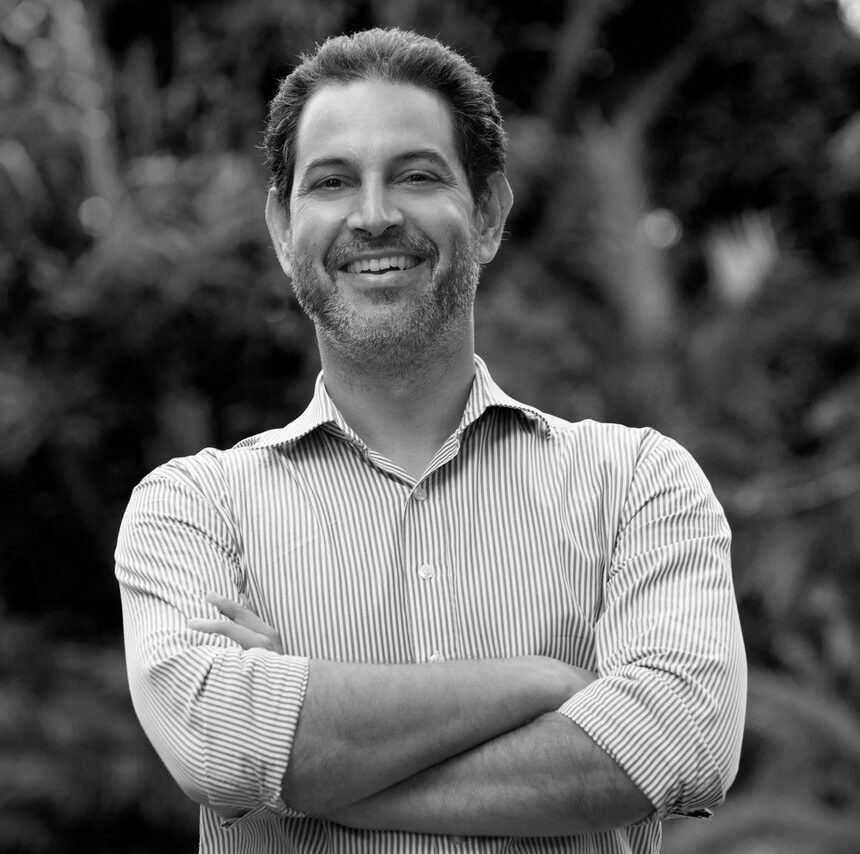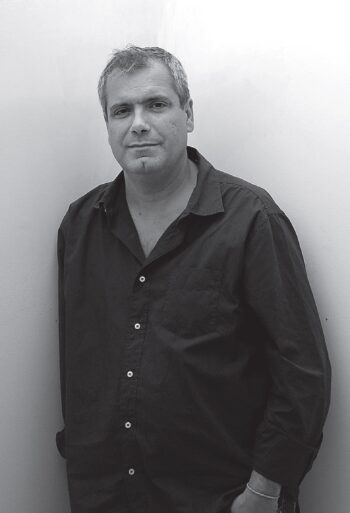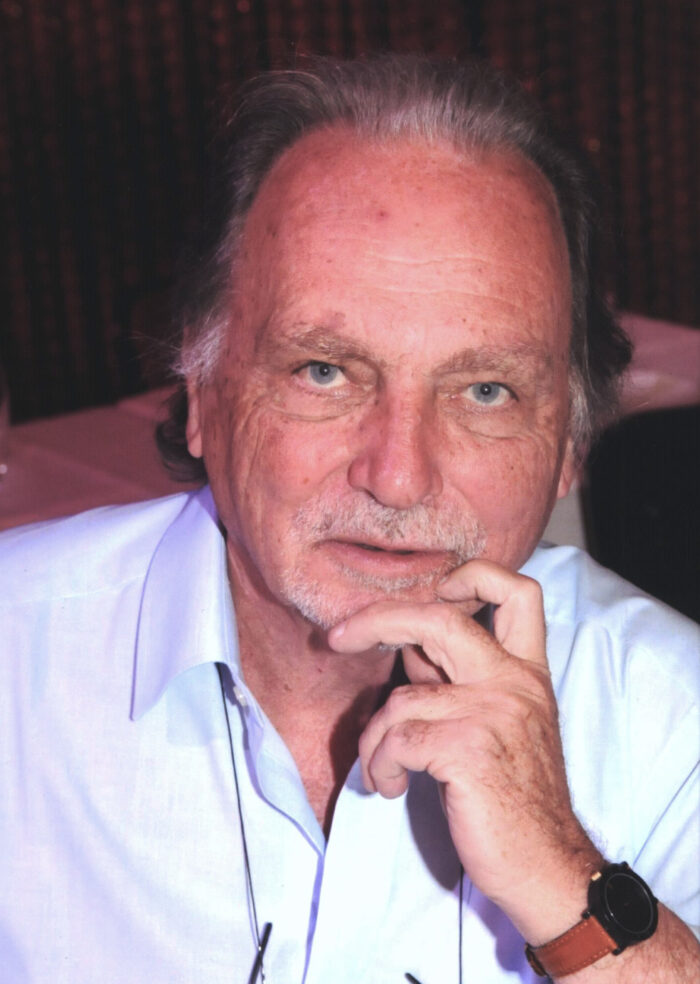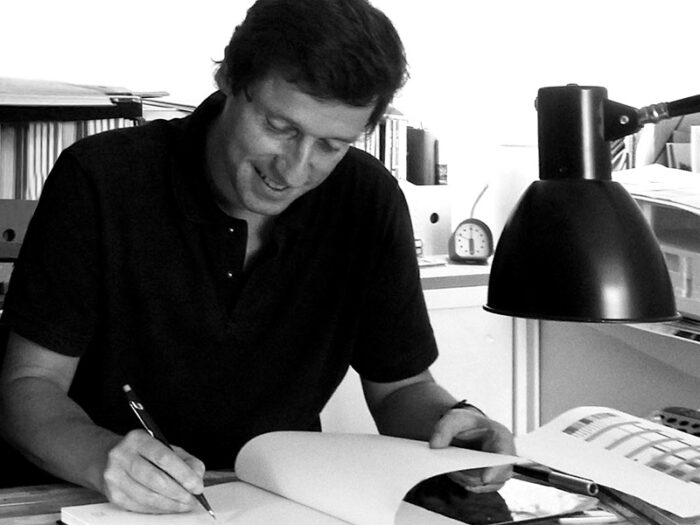A conversation with Arch. Dunga Rebelo

A conversation with Arch. Dunga Rebelo
'Working in Mozambique means being involved in structuring projects and having an impact on the country's development. Opportunities are constantly changing, requiring a transformation, which is very attractive '
Tell us about your professional career.
When I was little, I developed a passion for drawing. At school, I spent breaks (and some classes) drawing, and I ended up acquiring an aptitude for Geometric Design. I barely knew about architecture, but the opportunity arose through a scholarship on Curitiba, Brazil. Upon returning to Mozambique, 7 years later, after a short period on my own, I joined the architecture studio José Forjaz Arquitectos, where I stayed for 3 years and learned a lot. However, in 2007, my curiosity about the other facets of the construction industry led me to Épsilon Investimentos, a Mozambican company with a strong history in banking and with great ambitions in the real estate sector, of which I am still a part of.
How do you see the relationship between the owner and the architects, in the real estate project context?
The transition to real estate promotion led to a change in the way of looking at a work. The project ceased to be the focus and became one of several elements, often contradictory. But academic training and experience, make the dialogue with fellow architects more fluid. My approach to new ventures is influenced by notions of design and urban planning. Thanks to this training and the opportunity to travel, I also gained a much greater appreciation for the city where I live and where we intervene: Maputo.
What are the most interesting aspects when working in Mozambique?
Working in Mozambique means being involved in structuring projects and having an impact on the country’s development. Opportunities in Mozambique are constantly changing, reflecting our developing economy, and this requires a constant transformation, which is very attractive. In the 1990s, Mozambique went through a period of privatization of several businesses. Épsilon (SCI, at the time) made one of the first commercial banks in Mozambique (BCI), invested in agriculture, the processing industry, mining and salt. The real estate market changed between 2000 and 2010. There was little supply of quality space and, with the arrival of multinationals linked to the exploitation of natural resources, demand has tripled. It was a “sellers market” and Épsilon was one of the few promoters. The emergence of this market, with a high-quality demand and the ability to pay high rents, boosted the market.
What are the biggest difficulties you face in your daily life?
Initially, there was a limited supply of specialists in the various areas of design and inspection, with little diversity of materials and subcontractors. With the 2015 crisis, the Metical depreciated to less than half, interest doubled, leaving the market flooded with newly built, empty properties. More recently, many players have appeared in the real estate market, with very aggressive strategies and prices. And in this last year, the global pandemic has arisen, which has negatively affected the entire value chain. But perhaps the biggest challenge for the real estate sector is the lack of credit (at sustainable rates) for buyers, in particular the middle class.
How did you find BETAR and how do engineers contribute the most to the answers you need?
It was during my stay at José Forjaz Arquitectos that I had the pleasure of meeting Eng. Sérgio Mártires, who was a frequent presence in the office. When I joined Épsilon, several of the projects we developed had BETAR as a key part of the project team and I always maintained strong contact with Eng. Sérgio. One of the great advantages for us was the know-how that BETAR brought, of new solutions and technologies, little known or used in Mozambique.
In what areas have you had the most work? What is your vision for the future of Mozambique?
After the 2015 crisis, the real estate market entered a recession and Épsilon had to readjust. We ended up developing some capacity in providing services to the Oil & Gas industry, especially services related to the development, provision and management of facilities. Most of these projects are developed in the North of the country, where the challenges of operating are greatest. However, Épsilon still has several assets in Maputo / Matola to be developed and we continue to explore opportunities, including potential partnerships.
Mozambique’s future depends on the country’s economic and political stability, as well as the global impact of factors such as Covid and Global Warming. However, in the coming years, the Oil & Gas industry will have a strong influence on the real estate market, both due to the direct demand for spaces and the increase in money circulating in the economy. But I believe that the greater challenge is to guarantee access to safe and decent housing for the middle and low-income segment, starting with access to credit. In addition to the economic potential, being able to serve this market is fundamental to guarantee social stability.
This interview is part of Revista Artes & Letras # 128, March 2021
Partially automatic translation from portuguese: some expressions may differ from their actual meaning.
News & Interviews
A conversation with Arch. Manuel Aires Mateus
‘The client doesn’t draw with us, but we draw with his ambition, translating his individuality, and that takes us away from the banality of the answer’ Read more
A conversation with Arch. Pedro Ferreira Pinto
'I am looking for an architecture with a minimalist aspect and without excesses of austerity that tries to respond to society's challenges. I try to introduce an idea of simplicity, elegance and culture. ’ Read more
A conversation with Arch. Falcão de Campos
‘An architect is, par excellence, a non-specialist, has a global vision, coordinates various knowledges, both draws a handle as is able to plan parts of a city.‘ Read more




